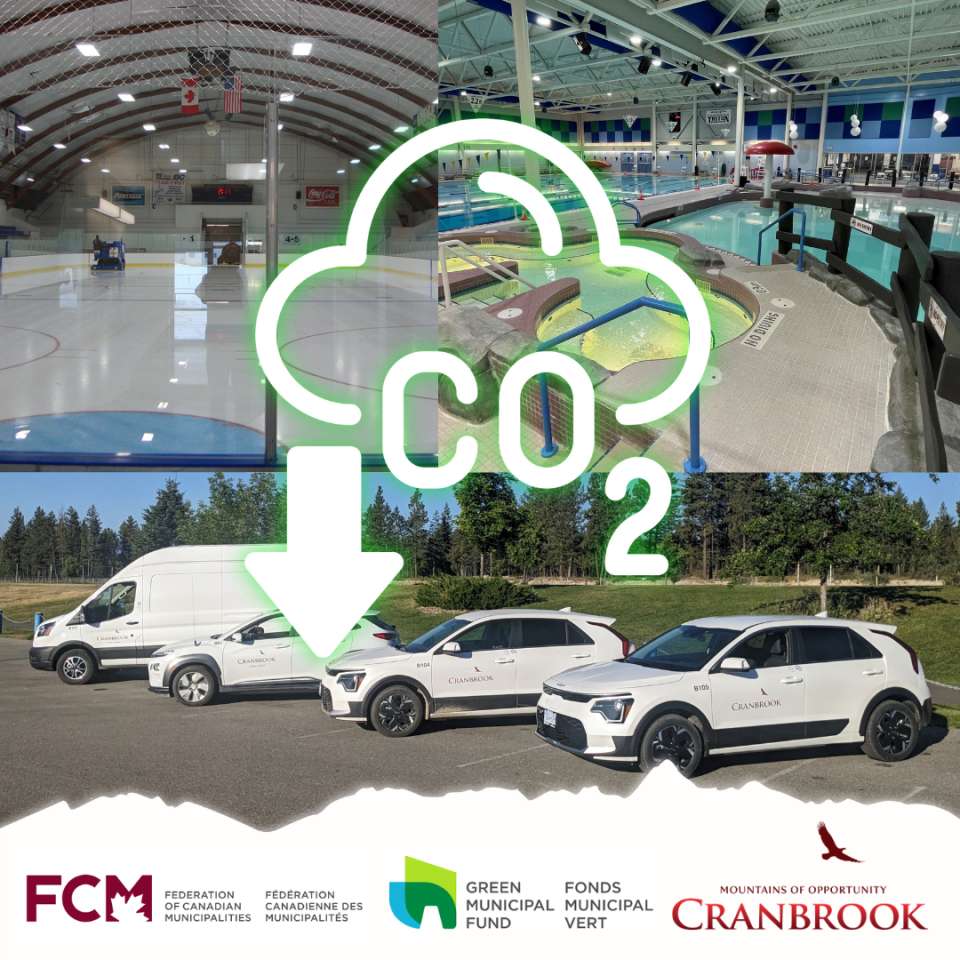Cranbrook, BC (February 10, 2025) – Two grants from the Federation of Canadian Municipalities (FCM) Green Municipal Fund, and the Province of BC’s Local Government Climate Action Program (LGCAP) funding has supported the creation of a Community Buildings Greenhouse Gas Reduction Study, along with a Fleet Asset Management and Use policy, a Fleet Electrification Plan and a Community Electric Vehicle (EV) Charging Plan for the City of Cranbrook.
Council approved the new Fleet Asset Management and Use policy at their regular meeting Monday night, after Administration brought forward each of these plans.
 “I want to acknowledge and thank our staff for their work in securing this funding and thank them for maintaining the City’s focus on both corporate and community climate action,” says Mayor Wayne Price.
“I want to acknowledge and thank our staff for their work in securing this funding and thank them for maintaining the City’s focus on both corporate and community climate action,” says Mayor Wayne Price.
In December 2023, Cranbrook secured funding to assess emission reduction opportunities for nineteen municipal buildings. The project, supported by multiple grant sources including BC Hydro’s CleanBC incentive program, aimed to evaluate energy performance, identify conservation measures, and provide two greenhouse gas reduction scenarios, one aiming for 50% reduction in 10 years and 80% in 20 years, and another targeting 80% reduction in 5 years.
The project’s results will help update asset inventories and guide future equipment replacements to lower greenhouse gas emissions. It will also support future grant applications for projects that further reduce greenhouse gases at City facilities.
In November 2023, the City secured FCM funding for the Fleet Policy and Decarbonization Study, which included three key objectives: develop a Fleet Asset Management policy and procedure, a Fleet Electrification Plan and a Community Electric Vehicle Charging Plan.
The Fleet Asset Management Policy, approved by Council Monday, is to guide the management and use of the City’s fleet assets while supporting the City’s overall Fleet Asset Management program.
The Fleet Electrification Plan evaluates the City’s existing fleet assets and provide a strategy for reducing GHG emissions from fleet vehicles. It also addresses the potential financial, environmental, electrical and infrastructure implications of transitioning the City’s vehicles to low and zero-carbon solutions. This is important to help continually improve City fleet management and prepare for future opportunities to further reduce carbon production within the fleet.
The Community Electric Vehicle Charging Plan, which also considers recommendations from the Downtown Parking Plan, will provide a roadmap for how to best provide, maximize and manage EV charging stations in the community while providing recommendations on where new EV stations are needed. As electric vehicles become more common, this EV plan will also help coordinate infrastructure installation and improvements.
You can review each of these studies and plans online:
 Cranbook
Cranbook


